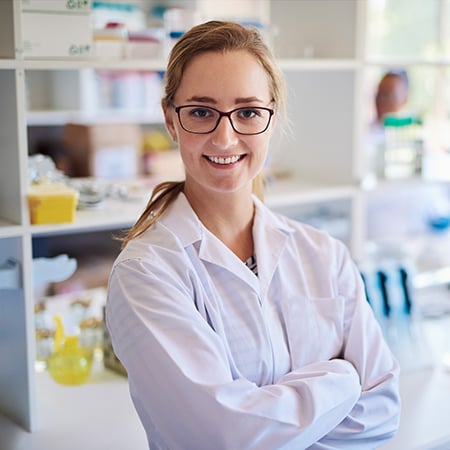XRD Application to Pharmaceuticals
This webinar series explains component analysis and standardless quantitative analysis concepts in the pharmaceutical space.
Component Analysis and Standardless Quantitative Analysis for Pharmaceutical Applications
Traditional quantitative analysis of solid-form content in a solid sample is challenging. Most notably in the production of representative standard calibration samples covering the concentration range of interest. In addition to weighing, mixing, and homogeneity errors, the resulting boutique standards will likely be not representative of the unknown material being analyzed.
The ideal solution has always been a Standardless Quantitative approach that is representative and relevant to the materials being studied. Component analysis using equal area scaling can make this ideal quantitative analysis solution a reality.
Simultaneous XRD-DSC – The sum Is Much Greater than the Parts
Almost all analytical labs supporting the Pharmaceutical industry will have both Thermal analysis tools and X-ray powder diffraction. So, what is the benefit of combining simultaneous DSC and XRD measurements into a single attachment. It turns out that having the simultaneous thermal and powder data on the same sample yields a wealth of information that is often not easily accessible using each analytical technique separately.
Total Diffraction and Amorphous Material Characterization
X-ray powder diffraction is regarded as the gold standard with respect to the characterization of crystalline solid forms in pharmaceutical materials. However, the traditional Bragg peak crystalline methods become less relevant with the general trends of the increasing complexity of active molecules and the prevalence of non-crystalline forms (amorphous, meso-phasic, nano-phases, etc.).

Contact Us
Whether you're interested in getting a quote, want a demo, need technical support, or simply have a question, we're here to help.

Subscribe to the Bridge newsletter
Stay up to date with materials analysis news and upcoming conferences, webinars and podcasts, as well as learning new analytical techniques and applications.




